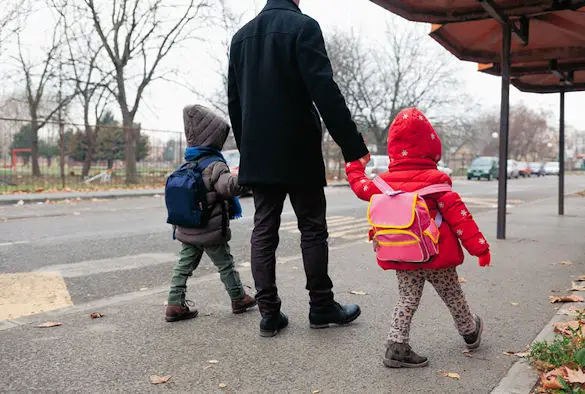A major report launched this week in Parliament paints a stark picture of inequality for children growing up in the North of England post-pandemic compared to those in the rest of the country.
Hosted by the Northern Health Science Alliance (NHSA) and N8 Research Partnership (N8), the launch event for The Child of the North: Building a fairer future after COVID-19 report, originally published in December 2021, was an opportunity to speak to academic experts in health inequalities, child poverty, early years, children’s rights education, and discuss how to tackle the widening inequalities for children in the North of England.
The considerable costs to society and the UK’s economy of rising inequality are outlined in report, produced by the Northern Health Science Alliance (NHSA) and N8 Research Partnership (N8). The report is written by over 40 leading academics from across the North of England including co-lead author Professor David Taylor Robinson and Professor Helen Stalford from the University of Liverpool.
The report looks at a wide range of factors, from child poverty to children in care, to build up a picture of The Child of the North. It sets out 18 clear recommendations that can be put in place to tackle the widening gap between the North and the rest of England.
Amongst its findings, it found that Children in the North of England’s loss of learning, experienced over the course of the pandemic, will cost an estimated £24.6 billion in lost wages over lifetime earnings.
They are more likely to be obese than a child elsewhere in England. At Year 6 (age 11): 6% in the North compared to 20.5% in the rest of England and have a 27% chance of living in poverty compared to 20% in the rest of England.
They have a 58% chance of living in a local authority with above average levels of low-income families, compared to 19% in the rest of England, and compared to children in England as a whole, they are more likely to die under the age of one.
They missed more schooling in lockdown than their peers elsewhere in England. Only 14% received four or more pieces of offline schoolwork per day, compared with 20% country-wide.
The mental health conditions that children in the North developed during the pandemic could cost an estimated £13.2 billion in lost wages over their working lives.
Children in the North are significantly more likely to be in care than those in the rest of England. Of the local authorities with more than 100 children per 10,000 in care, 21 of 26 are in the North.
Professor of Public Health and Policy at the University of Liverpool and co-lead author of the report David Taylor Robinson, said: “Children growing up in the North of England get a bad deal. Due to poverty and lack of investment, their outcomes are worse across the board – from risk of death in childhood, to obesity, mental health, and education, and the pandemic has made the situation worse. The stark inequalities exposed in our report are preventable and unfair. Levelling up must begin with better policies for children.”
Along with the report’s authors, the NHSA and N8 are calling for a set of recommendations to tackle the inequalities suffered by children over the course of the pandemic, including increasing Government investment in welfare, health and social care systems that support children’s health, particularly in deprived areas and areas most affected by the COVID-19 pandemic.
Hannah Davies, Health Inequalities lead for the Northern Health Science Alliance and report co-author, said: “The Child of the North report illustrates in no uncertain terms that without significant, properly-funded measures to tackle the entrenched inequalities experienced by children in the North of England, from birth, there will be no levelling up in the country.”







